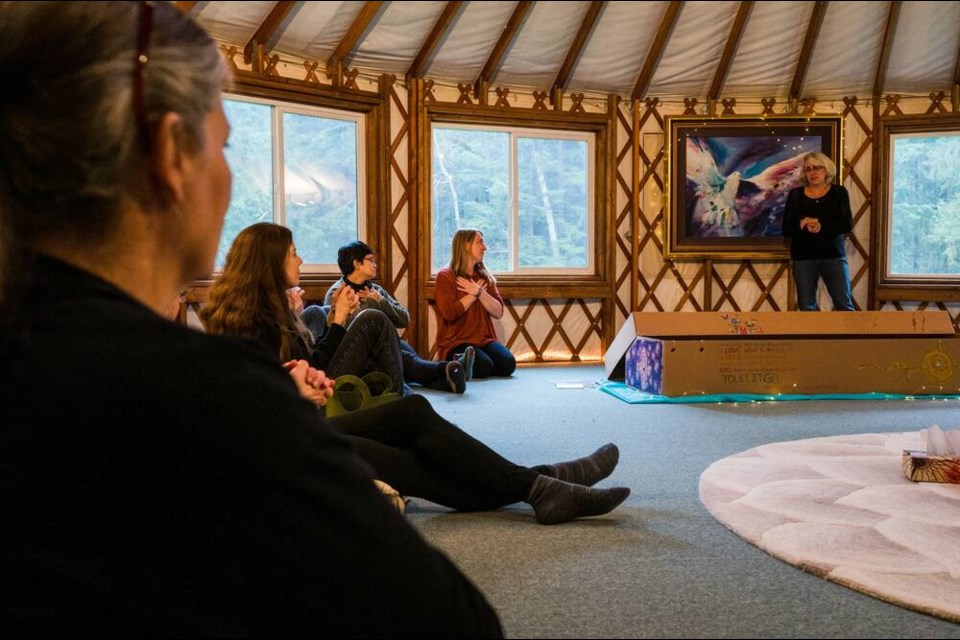Death, despite being the one thing that connects us all, is one of the most difficult topics of conversation to broach. For many, it feels like morbid and uncomfortable subject matter, but that shouldn’t have to be the case, argues funeral celebrant and end-of-life doula Megan Sheldon.
Sheldon is one of a group of four women who are making it their mission to remove the stigma around talking about death.
It is the driving force behind their joint event The Death Talk, which will bring hundreds together to talk about death, dying, and grief in a light and easy way at the Kay Meek Arts Centre September 28.
“We have realized how disconnected we’ve become to death and dying and grief, and so we’re trying to create new connections, and help people approach the conversation around death and dying in an easier way,” said Sheldon.
Sheldon, the founder of Be Ceremonial, a guided ritual app that empowers people to create their own end-of-life ceremonies, said it is never too early to talk about death.
The topic should be broached early on and drip-fed into conversations regularly to remove the shock and sombreness of the subject, she said, as not thinking about death until we are faced with it brings on its own mental toll.
“It’s really hard on us to push everything down and put it in a box and not approach it,” she said. “The science is showing us that the more we talk about this, the more we integrate it into our everyday life and the more we have small, bite-sized conversations, the better off we’ll be, not only from a planning perspective, but from a mental health perspective.”
Sheldon said the four women leading the event each represent a different stage of the death journey, and each are able to answer questions from their own separate perspectives.
Christa Ovenell, founder of advance care planning company Death’s Apprentice, focuses on ensuring there is correct and thorough education around death, while Emily Bootle, a licensed funeral director and end-of-life doula, works to support families after a loved one has died. Christina Andreola, as owner of events company New Narrative Events, specializes in creating unique and joyous celebrations of life.
The group are aged between 32 and 53, the ‘sandwich generation’ that involves raising little children while simultaneously caring for aging parents, said Sheldon. It means they are all familiar with discussing the topic in ways suitable for people of all ages, in their personal lives just as much as their professional ones.
Questions the group are most regularly asked address common misconceptions and presumptions around death and funerals, said Sheldon, with frequent questions around how to put together a funeral without it being all “doom and gloom”, how to create a celebration of life for someone that is still living, and how to celebrate the life of someone long after they have passed, whether that be one year or twenty.
“It’s never too late to create a ceremony to acknowledge someone that you’ve lost,” she said. “People think they need to approach death and manage funerals in a particular way. They think they need to have a funeral or a celebration of life within a certain time frame, or it needs to be built around certain rules and regulations. My advice is always to ask them why they think they need to do it this way, and what it were to be like if we were to reimagine,” she said.
“We’re here to just give people information and inspire them with stories, and make the conversation around death and funerals not quite so scary and hard.”
The Death Talk takes place at the Kay Meek Arts Centre in West Vancouver September 28. Tickets and more information can be found online.
Mina Kerr-Lazenby is the North Shore News’ Indigenous and civic affairs reporter. This reporting beat is made possible by the Local Journalism Initiative.



